Instructions For Form 1040-A - U.s. Individual Income Tax Return - 2016 Page 16
ADVERTISEMENT
2017 Form 1040A—Lines 1 Through 4
choose to file separate returns for that year after the due date of
Presidential Election Campaign
the return.
Joint and several tax liability. If you file a joint return, both
Fund
you and your spouse are generally responsible for the tax and
any interest or penalties due on the return. This means that if
This fund helps pay for Presidential election campaigns. The
one spouse doesn't pay the tax due, the other may have to. Or,
fund reduces candidates' dependence on large contributions
if one spouse doesn't report the correct tax, both spouses may
from individuals and groups and places candidates on an equal
be responsible for any additional taxes assessed by the IRS.
financial footing in the general election. The fund also helps
You may want to file separately if:
pay for pediatric medical research. If you want $3 to go to this
You believe your spouse isn't reporting all of his or her
fund, check the box. If you are filing a joint return, your spouse
income, or
can also have $3 go to the fund. If you check a box, your tax or
You don't want to be responsible for any taxes due if your
refund won't change.
spouse doesn't have enough tax withheld or doesn't pay enough
estimated tax.
Filing Status
See the instructions for line 3. Also see
Innocent spouse re-
lief
under General Information, later.
Check only the filing status that applies to you. The ones that
Nonresident aliens and dual-status aliens. Generally, a mar-
will usually give you the lowest tax are listed last.
ried couple can't file a joint return if either spouse is a nonresi-
Married filing separately.
dent alien at any time during the year. However, if you were a
Single.
nonresident alien or a dual-status alien and were married to a
Head of household.
U.S. citizen or resident alien at the end of 2017, you can elect
Married filing jointly.
to be treated as a resident alien and file a joint return. See Pub.
Qualifying widow(er).
519 for details.
For information about marital status, see Pub. 501.
Line 3
More than one filing status can apply to you. You can
choose the one that will give you the lowest tax.
TIP
Married Filing Separately
If you are married and file a separate return, you generally re-
Line 1
port only your own income, exemptions, deductions, and cred-
its. Generally, you are responsible only for the tax on your own
Single
income. Different rules apply to people in community property
states; see Pub. 555.
You can check the box on line 1 if any of the following was
true on December 31, 2017.
However, you will usually pay more tax than if you use an-
You were never married.
other filing status for which you qualify. Also, if you file a sep-
You were legally separated according to your state law
arate return, you can't take the student loan interest deduction,
under a decree of divorce or separate maintenance. But if, at
the education credits, or the earned income credit. You also
the end of 2017, your divorce wasn't final (an interlocutory de-
can't take the standard deduction if your spouse itemizes de-
cree), you are considered married and can't check the box on
ductions.
line 1.
Be sure to enter your spouse's SSN or ITIN on Form 1040A.
You were widowed before January 1, 2017, and didn't re-
If your spouse doesn't have and isn't required to have an SSN
marry before the end of 2017. But, if you have a child, you
or ITIN, enter "NRA."
may be able to use the qualifying widow(er) filing status. See
You may be able to file as head of household if you
the instructions for line 5.
had a child living with you and you lived apart from
TIP
Line 2
your spouse during the last 6 months of 2017. See
Married persons who live
apart, later.
Married Filing Jointly
Line 4
You can check the box on line 2 if any of the following apply.
You were married at the end of 2017, even if you didn't
Head of Household
live with your spouse at the end of 2017.
Your spouse died in 2017 and you didn't remarry in 2017.
This filing status is for unmarried individuals who provide a
You were married at the end of 2017, and your spouse
home for certain other persons. You are considered unmarried
died in 2018 before filing a 2017 return.
for this purpose if any of the following applies.
You were legally separated according to your state law
A married couple filing jointly report their combined in-
under a decree of divorce or separate maintenance at the end of
come and deduct their combined allowable expenses on one re-
2017. But, if at the end of 2017, your divorce wasn't final (an
turn. They can file a joint return even if only one had income or
interlocutory decree), you are considered married.
if they didn't live together all year. However, both persons
must sign the return. Once you file a joint return, you can't
-16-
Need more information or forms? Visit IRS.gov.
ADVERTISEMENT
0 votes
Related Articles
Related forms
Related Categories
Parent category: Financial
 1
1 2
2 3
3 4
4 5
5 6
6 7
7 8
8 9
9 10
10 11
11 12
12 13
13 14
14 15
15 16
16 17
17 18
18 19
19 20
20 21
21 22
22 23
23 24
24 25
25 26
26 27
27 28
28 29
29 30
30 31
31 32
32 33
33 34
34 35
35 36
36 37
37 38
38 39
39 40
40 41
41 42
42 43
43 44
44 45
45 46
46 47
47 48
48 49
49 50
50 51
51 52
52 53
53 54
54 55
55 56
56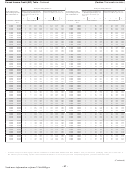 57
57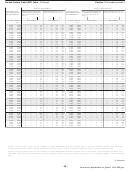 58
58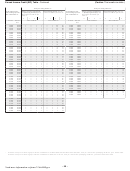 59
59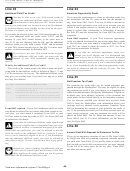 60
60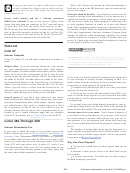 61
61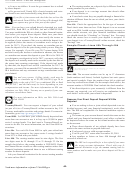 62
62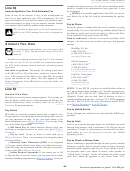 63
63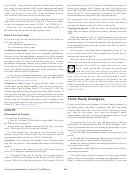 64
64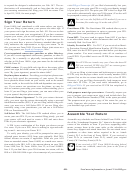 65
65 66
66 67
67 68
68 69
69 70
70 71
71 72
72 73
73 74
74 75
75 76
76 77
77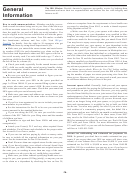 78
78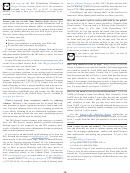 79
79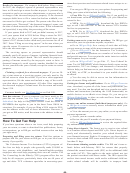 80
80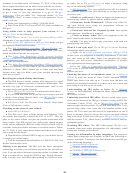 81
81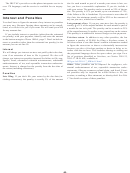 82
82 83
83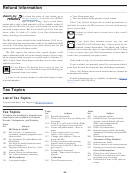 84
84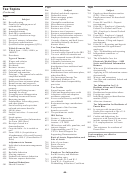 85
85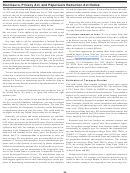 86
86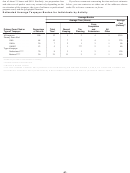 87
87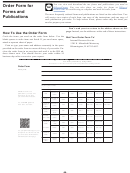 88
88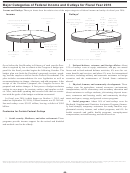 89
89 90
90 91
91 92
92








